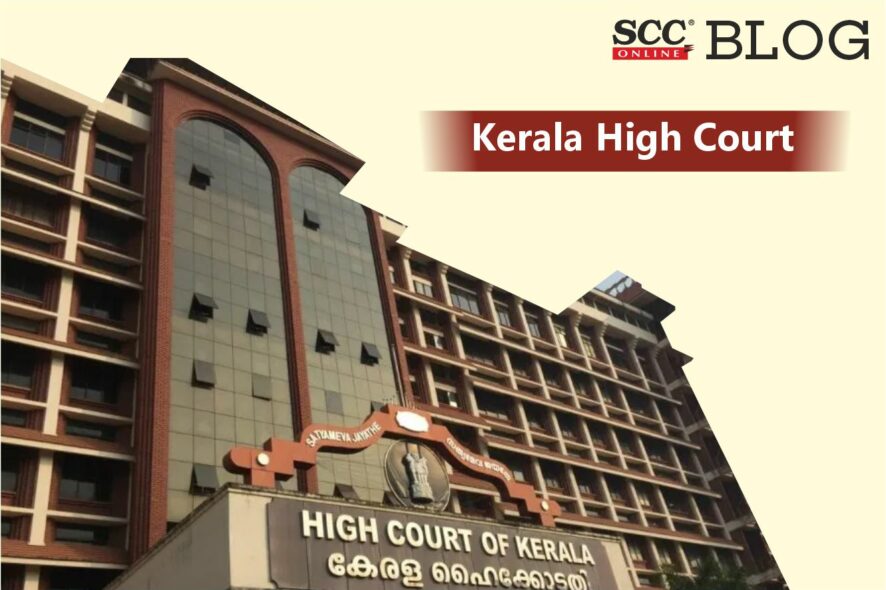Kerala High Court: While allowing a couple to have their frozen embryo transferred to another hospital for infertility treatment, V.G. Arun, J., held that the purpose of the Assisted Reproductive Technology (Regulation) Act, 2021 is to prevent sale of human gametes, zygotes, and embryos; and not to prevent a couple from using their own embryo to develop it into a fetus. The Court noted,
“Close scrutiny of the provision shows that the intention is to prevent/restrict the sale etc. of human gametes, zygotes, and embryos.”
Factual Backdrop
The petitioners-couple were married in the year 2007 and even after fifteen years of marriage, the first petitioner was unable to conceive. Hence, the couple opted for infertility treatment at the Craft Hospital and Research Centre.
As part of the procedure, the first petitioner underwent an Oocytes Retrieval procedure on 02-09-2014. Out of the six eggs injected after retrieval, four fertilised. The embryos were then preserved at the Craft Hospital. However, the treatment was stopped in 2016 on the advice of the Chief Consultant, since the required wall thickness of the uterus could not be obtained.
Later on, the couple re-commenced their treatment at the Sabine Hospital and Research Centre Pvt. Ltd. where the doctors asked the couple to request for transfer of the frozen embryos from the Craft Hospital to the Sabine Hospital.
Commencement of the Assisted Reproductive Technology (Regulation) Act, 2021
During the interregnum, the Assisted Reproductive Technology (Regulation) Act, 2021 came into force on 20-01-2022, imposing restrictions with respect to matters connected to the Assisted Reproductive Technology. Therefore, the Craft Hospital refused to transfer the embryos stating that transfer of the embryos is not permissible after the introduction of the Act.
Analysis by the Court
The preamble of the Act, 2021 shows that the objective of the Act is the regulation and supervision of the assisted reproductive technology clinics and the assisted reproductive technology banks, prevention of misuse, safe and ethical practice of assisted reproductive technology services for addressing the issues of reproductive health where assisted reproductive technology is required for further use due to infertility, disease or social or medical concerns and for regulation and supervision of research and development and for matters connected therewith or incidental thereto.
Further, under Section 29, there is a prohibition against sale, transfer, or use of gametes, zygotes, and embryos, or any part thereof or information related thereto, directly or indirectly to any party within or outside India, except in the case of transfer of own gametes and embryos for personal use with the permission of the National Board.
The Court noted that the intention of the Act, 2021 is to prevent/restrict sale, etc. of human gametes, zygotes and embryos and in the case at hand, there is no such transfer since no donor or third party is involved and the embryos are that of the commissioning couple. Hence, the Court held that Section 29 does not interdict such transfer.
The Court expressed,
“Apart from the aspirations of the first petitioner to conceive and the second petitioner, to beget a child, the right of the life inside the embryo, which is kept frozen for the past 8 years, to develop into a fetus and be born, cannot be stultified by relying on a provision which has no application.”
Considering that the maximum period for which embryos can be preserved is ten years and eight years having elapsed already, the Court held that the petitioners would be put to undue prejudice and misery if the transfer is not permitted.
Conclusion and Directions
Resultantly, the Court concluded that the primary objective of the Act, 2021 is the regulation and supervision of the assisted reproductive technology clinics and banks, by preventing misuse and ensuring safe and ethical practice of assisted reproductive technology services. Holding that the Act, 2021 is not intended to create difficulties for persons opting for the assisted reproductive procedure, the Court issued the following interim directions:
-
Petitioners shall pay the amounts due to the Craft Hospital for preserving the embryos from 02-09-2014 onwards and on such payment being affected, the hospital shall forthwith permit the transfer of the embryos to the Sabine Hospital.
-
The Sabine Hospital shall collect the embryos and transfer it to its Assisted Reproductive Technology Bank and preserve the embryos with due care and protection.
-
The Sabine Hospital shall file an affidavit within five days affirming that it has all the requisite facilities envisaged under the Act.
The matter is posted after a week for further hearing.
[Rakhi Bose v. Union of India,2022 SCC OnLine Ker 3250, decided on 21-06-2022]
Advocates who appeared in this case :
Abraham Vakkanal, Senior Advocate along with M/S. Paul Abraham Vakkanal, Vineetha Susan Thomas & Rohith C., Advocates, for the Petitioners;
Assistant Solicitor General, for Union of India;
Government Pleader, for State of Kerala;
Sherin Varthese, Advocate, for Sabine Hospital and Research Centre Pvt. Ltd.
*Kamini Sharma, Editorial Assistant has reported this brief.







